Storage period for payment receipts
Not a single piece of legislation specifies how long citizens must keep receipts for utility bills. Some people prefer to throw them away immediately after payment, and this does not cause any problems.
But it also happens that management companies or resource-providing organizations make claims to consumers about late payment, when the money was actually transferred, but this is impossible to confirm.
Previously, the form of the receipt was approved by Order of the Ministry of Construction of the Russian Federation dated December 29, 2014 No. 924, but at the moment the document has lost force. Now the payment must comply with the requirements specified in clause 69 of the Decree of the Government of the Russian Federation dated 05/06/2011 No. 354, according to which all the necessary information is reflected in it:
- actual address of the residential premises; FULL NAME. owner;
- account number;
- the period of time for which payment is made;
- the value of the increasing coefficient (if it is applied);
- the volume of all utilities separately (gas, water, electricity, etc.);
- volume of services for general house needs;
- information about the amount of recalculation;
- information about the amount of debt incurred by the consumer;
- information about available payment benefits, or about deferred or installment payments;
- barcodes corresponding to GOST R56042-2014;
- previous meter readings;
- details of the organization for transferring funds;
- a column with current indicators for meters for transfer to the management company (filled in by the payer independently).
Expert opinion
Mironova Anna Sergeevna
Generalist lawyer. Specializes in family issues, civil, criminal and housing law
If the payment receipt does not meet the specified requirements, this is a violation on the part of the management company or another organization responsible for its generation. There is no point in saving it in this situation, because... it has no legal force.
After payment, the citizen is issued a receipt confirming the fact of the transaction. If money is transferred online using a special service, it is recommended to download and print the paper. When you contact the bank, a check will be issued immediately and each document should be kept attached to the receipts for the periods.
What is reflected in receipts for housing and communal services
A receipt for payment of housing and communal services is a document drawn up according to the model approved by Order of the Ministry of Construction and Housing and Communal Services of the Russian Federation 43/pr dated January 26, 2018.
A receipt for payment of utilities is an official payment document confirming the presence or absence of debt to management or resource companies for past periods
The receipt form is optional. For the convenience of payment and accounting of payments in different regions, it may differ, but the required details remain:
This is important to know: Contract for gasification of a private house: sample
In the updated form, the section on major repairs has been removed, which will now be paid for on a separate receipt.
Video: what does a receipt for housing and communal services consist of?
What the law says
There is no law in the Russian Federation establishing clear terms for storing payment documents. But we must not forget about Art. 196 of the Civil Code of the Russian Federation, according to which a citizen or organization that has discovered a violation of rights may file a claim in court within three years.
Calculation of the storage period (prescription) begins with the month for which payment is made. For example, if an owner transfers funds in May 2020, the retention period ends on June 1, 2020.

It is also worth considering the provisions of Art. 199 of the Civil Code of the Russian Federation: if the statute of limitations has expired, the Criminal Code will still be able to go to court to protect its rights and interests. If a citizen does not provide receipts confirming the payment of utility services, he will have to pay everything again.
When transferring a case to bailiffs, an additional enforcement fee of 7% of the debt amount is charged. In addition, by a court decision, the owner may be required to pay a fine, the amount of which depends on the length of the delay:
- up to 90 days inclusive – 1/300 of the refinancing rate of the Central Bank of the Russian Federation;
- from 91 days – 1/130 of the key rate.
Payments may not be received for various reasons, ranging from making mistakes when filling out a document when paying via the Internet, to indicating incorrect details of the management company itself. In the latter case, the fault lies entirely with the management company, and it will not be possible to recover money from the consumer.
How long should utility bills be kept? 2020
Many consumers have a question about how long to keep receipts for utility bills and when it will be possible to finally get rid of a whole mountain of papers. In order to be able to prove the opposite in the event of any misunderstandings about the fact that an individual did not pay for gas, water or other services, he will need to provide the management service with the appropriate receipt.
The recommended storage period for such documents is 5-6 years or more.
This article will talk about the period during which utility services can present to the consumer that he is listed as a debtor, and the funds for the payment have not been received.
As is known, consumers are required to pay a certain price monthly for housing and utility services (for example, water supply, gas, electricity and others) provided to property. The document confirming the fact of depositing funds is a receipt. If a particular service is not paid for by the consumer on time, then by default he becomes a debtor. However, it may also be that an individual transferred funds, but for some technical reason they were not delivered. This may be due to the fault of management service employees or due to technical failures that have arisen in the banking organization.
Attention! If the user promptly repaid the amount for utility services issued to him as an invoice in a single payment document, and lost the receipt, and after a while he was shown that the service had not been paid, then he will not be able to prove the opposite.
Documents drawn up in the form of receipts are intended for making financial payments and serve as proof that they were successful. However, it is very important that the form of payment is exactly the one approved by law. The Ministry of Construction and Public Utilities of Russia in 2014 published order number 924, which describes what requirements the receipt must meet.
In addition to the rules regarding the content of the document intended for making payments for utility services, the order shows what a receipt for payment for repair work should look like. In addition, instructions for filling out receipts are provided for property owners. If all the requirements of Order No. 924 are met, then the receipt will be recognized as a document having legal force and weight.
The form of unified payment documents changes periodically. In 2019, in order to determine whether a receipt meets the basic criteria presented by Order No. 924, it is enough that it contains the following attributes:
- Types of communal resources. In order to clearly identify how much the user is required to pay in the current month for a specific utility service, and not for everything in general, the name of each resource is written on the receipt. These values are entered in the first column of the payment order, and their characteristics are written in all other columns.
- Consumption standards . The bill also indicates the consumption standards for each utility resource, approved by the Housing Code and Government resolution. Quantitative indicators are written in the adjacent column. In other words, numbers indicating how much a user consumed a particular service. By multiplying the consumption rate by its quantity, an individual will be able to independently check whether the correct amount has been charged to him for payment.
- Requisites. As with any other document, the receipt for repayment of the monthly fee for the use of utility services must contain general information. First of all, this is the last name, first name and patronymic of the individual who is the owner of the property, as well as the address of the apartment/house. In addition, the bank details of the management office to whose account the funds must be transferred must be entered correctly. These details include the bank identification code (BIC) and the legal entity itself (TIN), a transit account, as well as some others.
It should be noted that if the receipts that the consumer received as a result of paying for utility services do not comply with the above requirements, as well as other rules approved by law, then there is no point in storing them, since they are not legal.
The law does not clearly state how long consumers are required to keep receipts at home. However, in current legislation there is such a term as the statute of limitations. This concept refers to the period during which an individual, in the event of a violation of his personal rights, can apply to the court for their protection. The duration of this period is three years. This fact is confirmed by Article 196 of the Civil Procedure Code of the Russian Federation.
However, it is still recommended that users of housing services keep payment documents for five years or even longer. This is explained by the fact that even if the limitation period has come to an end, and the management organization has presented a claim to the consumer regarding accumulated debt, which in fact does not exist, he still has the right to file an application with the judicial authorities demanding protection of his rights. The court, in turn, is obliged to consider the claim. Article number 199, located in the Civil Procedure Code, states that the judicial authority in any case must familiarize itself with the document related to the protection of the applicant’s rights, and whether the statute of limitations has expired does not play any role.
This is interesting: The Government of the Russian Federation has made changes to the rules for the calculation and provision of utility services in 2020
This fact is based on the fact that the limitation period in some cases could be interrupted or stopped altogether, and therefore is subject to extension. However, if the judge has determined that this period has expired, then he has every reason to issue a refusal related to ensuring the applicant’s defense rights. In this regard, there is no need to throw away payment documentation indicating payment for utility services until the statute of limitations has passed. In other words, receipts are stored for at least three calendar years.
Some individuals do not know from what point the statute of limitations begins. For example, if in a single payment document the period is January 2020, then its storage period will end on February 1, 2021. However, this does not mean that the receipt should be thrown away immediately. If the payer has the opportunity to leave it for a certain period of time, then the longer this period is, the better. Although the statute of limitations on payments will no longer apply in the case of minor internal proceedings with housing authorities that do not involve court hearings, an individual will still be able to defend his rights.
Some consumers pay utilities using electronic receipts. In such situations, it is also strongly recommended to either print out the payment slips themselves and store them for at least three years, or transfer to paper checks indicating the transfer of funds to the account of the management office. In addition, you can download documents to a separate folder on your personal computer, and in case of any misunderstandings, print out the required payment slip and present it as written evidence.
By law, consumers are not required to keep receipts for payment of utility bills, but such documents are evidence of timely transfer of funds in the event of problematic issues with the management company. To understand this issue, you need to study the recommended storage periods and other nuances.
Not a single piece of legislation specifies how long citizens must keep receipts for utility bills. Some people prefer to throw them away immediately after payment, and this does not cause any problems.
But it also happens that management companies or resource-providing organizations make claims to consumers about late payment, when the money was actually transferred, but this is impossible to confirm.
Previously, the form of the receipt was approved by Order of the Ministry of Construction of the Russian Federation dated December 29, 2014 No. 924, but at the moment the document has lost force. Now the payment must comply with the requirements specified in clause 69 of the Decree of the Government of the Russian Federation dated 05/06/2011 No. 354, according to which all the necessary information is reflected in it:
- actual address of the residential premises; FULL NAME. owner;
- account number;
- the period of time for which payment is made;
- the value of the increasing coefficient (if it is applied);
- the volume of all utilities separately (gas, water, electricity, etc.);
- volume of services for general house needs;
- information about the amount of recalculation;
- information about the amount of debt incurred by the consumer;
- information about available payment benefits, or about deferred or installment payments;
- barcodes corresponding to GOST R56042-2014;
- previous meter readings;
- details of the organization for transferring funds;
- a column with current indicators for meters for transfer to the management company (filled in by the payer independently).
After payment, the citizen is issued a receipt confirming the fact of the transaction. If money is transferred online using a special service, it is recommended to download and print the paper. When you contact the bank, a check will be issued immediately and each document should be kept attached to the receipts for the periods.
There is no law in the Russian Federation establishing clear terms for storing payment documents. But we must not forget about Art. 196 of the Civil Code of the Russian Federation, according to which a citizen or organization that has discovered a violation of rights may file a claim in court within three years.
Calculation of the storage period (prescription) begins with the month for which payment is made. For example, if an owner transfers funds in May 2020, the retention period ends on June 1, 2020.

It is also worth considering the provisions of Art. 199 of the Civil Code of the Russian Federation: if the statute of limitations has expired, the Criminal Code will still be able to go to court to protect its rights and interests. If a citizen does not provide receipts confirming the payment of utility services, he will have to pay everything again.
When transferring a case to bailiffs, an additional enforcement fee of 7% of the debt amount is charged. In addition, by a court decision, the owner may be required to pay a fine, the amount of which depends on the length of the delay:
- up to 90 days inclusive – 1/300 of the refinancing rate of the Central Bank of the Russian Federation;
- from 91 days – 1/130 of the key rate.
Payments may not be received for various reasons, ranging from making mistakes when filling out a document when paying via the Internet, to indicating incorrect details of the management company itself. In the latter case, the fault lies entirely with the management company, and it will not be possible to recover money from the consumer.
The optimal storage period for utility bills is 5 years. This is not regulated by anything, but, as practice shows, management companies can make claims even after three years, when the payer has already changed in the event of a donation of real estate or a change of place of residence for other reasons.
This is interesting: Joint and several liability for utility debts 2020
After three years, the owner can throw away the documentation, but it is better to wait a little longer. Despite the fact that in small court proceedings the statute of limitations will have expired by this time, the presence of a receipt will allow a citizen to defend his rights in pre-trial proceedings.
To ensure the safety of invoices for payment of services, it is recommended to store them in a separate folder. This will allow you to find documents when problem situations arise as quickly as possible. If a consumer pays for utilities via the Internet (for example, Sberbank Online), it is enough to save and print the receipt, then attach it to the payment receipt sent monthly for entering readings and payment.
For the above reasons, it is recommended that you keep receipts for 5 years to avoid any hassles and to confirm the payment transaction if necessary.
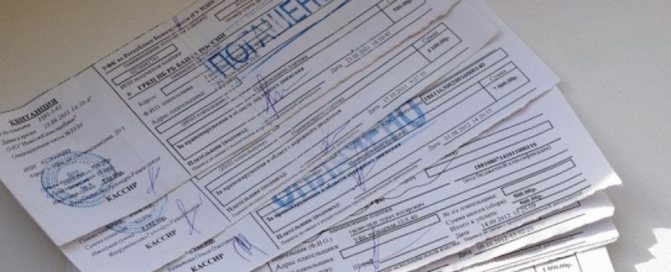
Every tenant or homeowner must pay for housing and communal services. This process is performed on the basis of receipts that are sent by the management company to the payer’s address. The documentation is equipped with calculations, necessary information and even a barcode, which greatly simplifies the process of depositing funds.
Dear readers! Our articles talk about typical ways to resolve legal issues, but each case is unique.
At the same time, there are certain requirements regarding how long the receipts must be kept.
These documents will include important information for payers. These include:
- personal account number assigned to a specific residential premises;
- Full name of the direct payer;
- type of residential real estate for which funds must be paid for housing and communal services;
- type of ownership of this object;
- total area of the apartment or house;
- a list of utilities that are paid on the basis of a specific receipt;
- the scope of services provided is indicated;
- if the apartment is located in a high-rise building, then it is additionally stated how much resources were supplied for the entire building;
- meter readings are given;
- the tariff on the basis of which the payment was calculated is specified;
- the table indicates how much was paid in the past, which allows you to determine the existence of a debt;
- recalculation data is provided;
- it is indicated whether the citizen has the right to enjoy benefits;
- information is provided on whether installment plans are provided to the payer;
- there is information regarding the period for which the calculation was made.
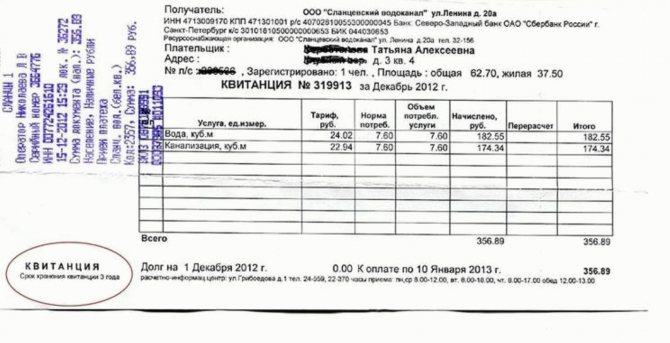
What does a paid receipt look like?
The information is presented in the form of a clear and simple table, so everyone can easily understand all the information.
Each person must keep these documents together with checks, which serves as confirmation of the payment made. This is necessary in a situation where there are malfunctions in the work of the management company or resource enterprises, so they will not see in their programs how much funds were transferred by one or another payer.
Lawyers advise keeping receipts and checks for as long as possible, so a period of three years is not always optimal. Legal proceedings can begin even within five years after any error is discovered.
This video will tell you how long you need to keep receipts for payment for housing and communal services:
Court proceedings between resource enterprises and service users are popular, and often the court takes the side of the companies if citizens cannot document the funds contributed.
Even if the statute of limitations expires, citizens have the right to defend their rights if they are violated by resource enterprises.
The basic rules for storing various documentation are prescribed in the Housing Code and Civil Code. There are no strict requirements regarding how long receipts and other payments must be retained. The statute of limitations is three years, which is why people often retain documentation during this period.
Within three years, either party can go to court. If this period expires and the resource company files a lawsuit anyway, the defendant must immediately raise this point to dismiss the case.
There is no precise information in the legislation regarding this issue, so people must decide for themselves how long they will have paid receipts. According to banking recommendations and warnings, it is important to store such important documents for three years.
This period is based on the limitation period. It is during this time that claims can be filed in court against defaulters. Therefore, it is not advisable to save documents for a shorter period of time.
Important! If you don’t want to store so many papers at home, then you can use the electronic method of paying for services, and then view all the necessary receipts in your personal online banking account, since the information is stored on the personal account for quite a long time.
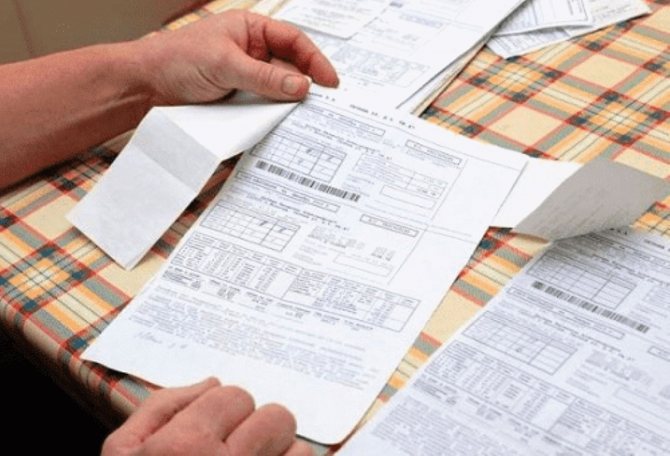
Do I need to keep receipts and payment receipts?
Awareness of how long receipts need to be kept is required in order to prevent possible future legal proceedings on the basis of which resource companies collect funds from payers.
Therefore, it is advisable to save receipts in paper or electronic form for a long time, at least 3 years.
When storing different payment documentation, it is recommended to take into account some nuances. These include:
- since data on checks is usually quickly erased, it is advisable to make better copies;
- Elements should be stored in a closed box so that they are not exposed to sunlight, as they cause the ink to fade;
- if possible, it is advisable to pay for utilities via the Internet, which will allow you to store receipts on your computer in electronic form, so you can always access them or print them out if necessary.
This is interesting: Utility consumption standards for 2020
All these actions will allow you to always be able to use payment cards for different purposes.
If such documents are not available, it will be impossible to prove that payment was made. This may lead to resource companies or management companies winning different cases. Therefore, it is receipts and checks that are proof of the responsibility and reliability of the payer.
How to properly organize the storage of rent receipts, watch the video:
Thus, it is mandatory to store receipts on the basis of which housing and communal services are paid. It is advisable to carry out this process for three to five years. In the absence of documents, citizens are highly likely to lose various legal proceedings.
Didn't find the answer to your question? Find out how to solve exactly your problem - call right now:
A receipt is a payment document. It proves that the homeowner’s money was paid to organizations that provide people with electricity, water, gas, heating and other services. To avoid misunderstandings, all “payments” must be stored for a certain time. How long to keep receipts for utility bills - there is only one answer: the longer the better.
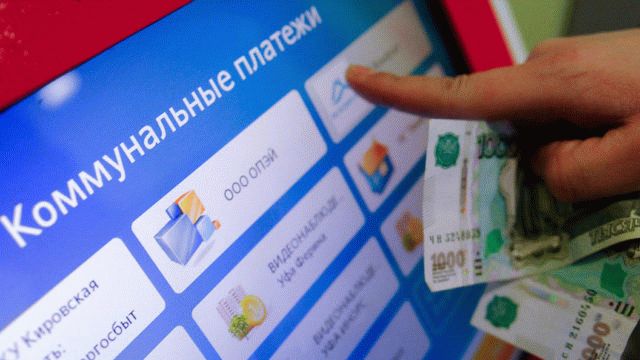
The form of issue of this payment document is approved by law. The receipts indicate all the resources provided. Each resource is highlighted on a separate line:
- electricity;
- gas;
- cold and hot water;
- heating;
- other types of services (elevator, intercom, territory cleaning, repairs).
The resource standards calculated for one consumer are also indicated. They are established by regional authorities.
Each payer has a personal code in the form of a set of numbers. This is convenient for making payments through bank terminals.
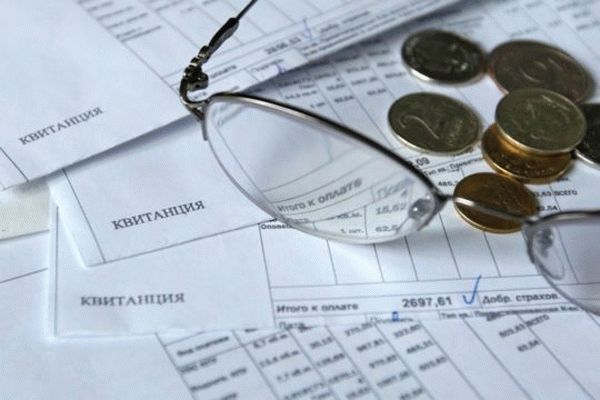
The housing and communal services payment document contains the following information:
- owner's personal account;
- details of the organization to which the payment is received;
- FULL NAME;
- type of real estate (apartment, room, house);
- type of ownership (shared, full);
- number of paid services;
- volume and size of resources provided;
- meters data;
- tariffication;
- amount paid;
- presence or absence of debts;
- calculation period;
- agreement on installment payment.
The official legislation does not clearly state how long utility receipts need to be kept. Banks inform people that it is better to save them for three years. This period is related to the statute of limitations.
If a utility organization has debtors, it has the right to collect the debt from them within 3 years. Debt collection is carried out by filing a court application. This is a reason for people to save utility receipts and not accumulate debt.
Practice shows that the optimal storage period for paid receipts and checks is five years. Situations arise when a person is mistakenly considered a debtor after the expiration of a three-year period.
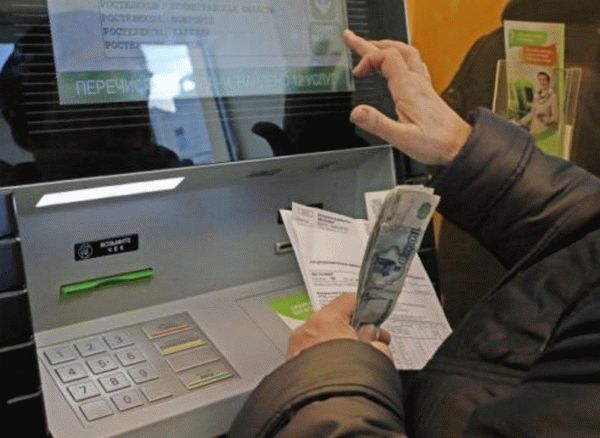
The receipt must be issued in the form approved by law. In 2014, order No. 924 was issued. It was drawn up by the Ministry of Construction and Public Utilities. It describes in detail what the payment looks like, and also indicates the requirements that it must meet. When paying for utilities, owners are required to know how to fill out the receipt correctly. If all requirements are met, it is considered a legal document.
Order in the house is the key to good mood and well-being of all household members. There is nothing difficult about…
The form and type of tickets may change, but the main sections in them remain unchanged. In addition to the basic information that is in the payment, it contains the bank's BIC, TIN of the legal entity and other necessary information.
If receipts do not comply with legal requirements, they are invalid.
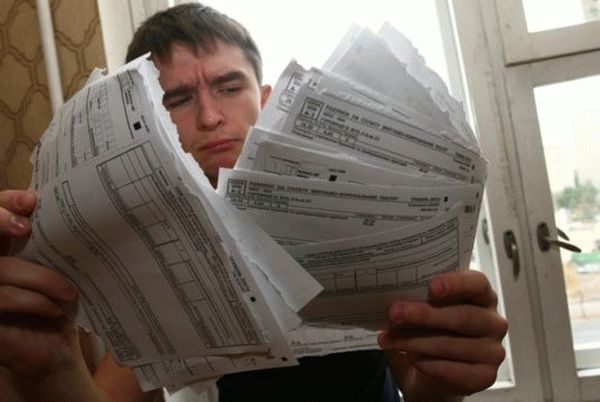
Storage periods are not specified in any law. It is worth mentioning once again the statute of limitations. During this period, a person has the right to seek help from the court if his rights are violated. The three-year period is prescribed in the Civil Code, Article 196. It is better if the receipts are kept by the owner for up to 5 years. This is written about in another article of the Civil Code, No. 199.
In judicial practice, there are cases when this period can be interrupted, stopped or extended. If it has expired, the judge has the right to render a verdict in favor of the applicant.
The statute of limitations is easy to calculate. The receipt for February 2018 will expire at the beginning of March 2021. Saved documents should not be thrown away - just in case. If the owner has a misunderstanding with housing and communal services, they may be useful in legal proceedings.
When paying via the Internet, the storage period for utility payment receipts is also three years. Payment documents must be printed, and receipts must be stored on paper. This will serve as proof of the absence of debts to the management organization.
All documents can be stored electronically on a computer. If necessary, they can be printed at any time.
To avoid conflicts with representatives of housing and communal services, you need to pay all bills on time. If the owner has no debts, the likelihood of erroneous charges for payment of housing and communal services will be much less.
»
Payments
Payment of utilities via the Internet Caspian Bank 2020
Read more
Great article 0
When can you throw away payments?
The optimal storage period for utility bills is 5 years. This is not regulated by anything, but, as practice shows, management companies can make claims even after three years, when the payer has already changed in the event of a donation of real estate or a change of place of residence for other reasons.
After three years, the owner can throw away the documentation, but it is better to wait a little longer. Despite the fact that in small court proceedings the statute of limitations will have expired by this time, the presence of a receipt will allow a citizen to defend his rights in pre-trial proceedings.
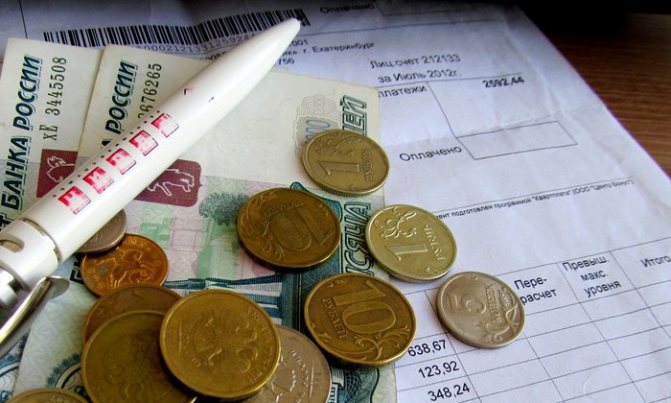
Features of storing checks and receipts
To ensure the safety of invoices for payment of services, it is recommended to store them in a separate folder.
This will allow you to find documents when problem situations arise as quickly as possible. If a consumer pays for utilities via the Internet (for example, Sberbank Online), it is enough to save and print the receipt, then attach it to the payment receipt sent monthly for entering readings and payment. If the payer cannot confirm the fact of payment, a debt will arise.
Banks have the right to seize his accounts by order of bailiffs, but this happens in extreme cases.
For the above reasons, it is recommended that you keep receipts for 5 years to avoid any hassles and to confirm the payment transaction if necessary.








